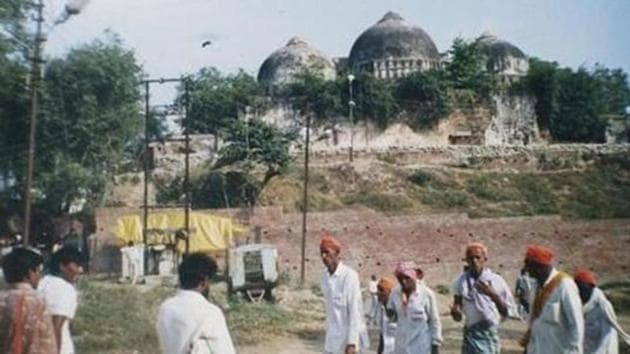Supreme Court to take up Ayodhya land dispute case today
The top court directed both sides — Hindu and Muslim organisations — to maintain utmost confidentiality during the process of mediation, which was to be held in-camera.
The Supreme Court will on Friday hear the politically sensitive Ram Janmabhoomi-Babri Masjid land dispute case and may take up the report of the mediation panel tasked with exploring the possibility of an amicable settlement of the decades-old issue.

The panel was constituted by the top court on March 8.
A notice posted on the apex court’s website said that the constitution bench led by Chief Justice Ranjan Gogoi would assemble at 10.30 am to take up the matter. This will be the first time that the bench will take up matter since it referred the dispute to the mediation panel. Friday is the last day before the court breaks for summer vacation; it is to reopen in July. The other members of the bench are justices SA Bobde, DY Chandrachud, Ashok Bhushan and SA Nazeer. The court had on March 8 set up a three-member mediation panel and told it to submit its report within eight weeks. Justice FM Khalifulah, a retired Supreme Court judge, is the chairman of the panel and Art of Living founder Sri Sri Ravi Shankar and senior advocate Sriram Panchu are the other mediators. Panchu is a trained mediator. According to the court order, the mediation took place at Faizabad.
The top court directed both sides — Hindu and Muslim organisations — to maintain utmost confidentiality during the process of mediation, which was to be held in-camera.
The court is hearing petitions challenging a 2010 Allahabad High Court order that trifurcated the 2.77-acre-site between the Nirmohi Akhara, the Sunni Central Waqf Board, and Ram Lalla [the child deity].
The court is also considering a petition by the Centre, which wants to release 67.7 acres of land acquired in 1993 around the site — except for .303 acres on which the actual disputed structure stood — to its original owners. The suggestion for mediation in the matter was opposed by the Uttar Pradesh government and the Hindu parties, except the Nirmohi Akhara, a religious denomination that is one of the main parties to the civil suit, but was welcomed by the Muslim side. The court had for the first time suggested mediation as a possibility to resolve the contentious dispute in a hearing on February 26. The judges suggested an amicable resolution while telling the parties that they were seriously “giving a chance for mediation” in an attempt to “heal relationships”. “Don’t tell us history. We have also read history. Do not tell us what we already know. We have no control over what happened in the past...we have no control over the past. We can only undo the present, which is the dispute before us,” Justice Bodbe had said during a hearing earlier this week.
Justice Chandrachud, however, aired his doubts over the binding nature of mediation and whether it would work in a dispute that has taken the nature of a representative suit. “It’s no longer a dispute between just two parties but a wider dispute between two communities. Even if we go through mediation how would it be binding on all?” he had wondered.






